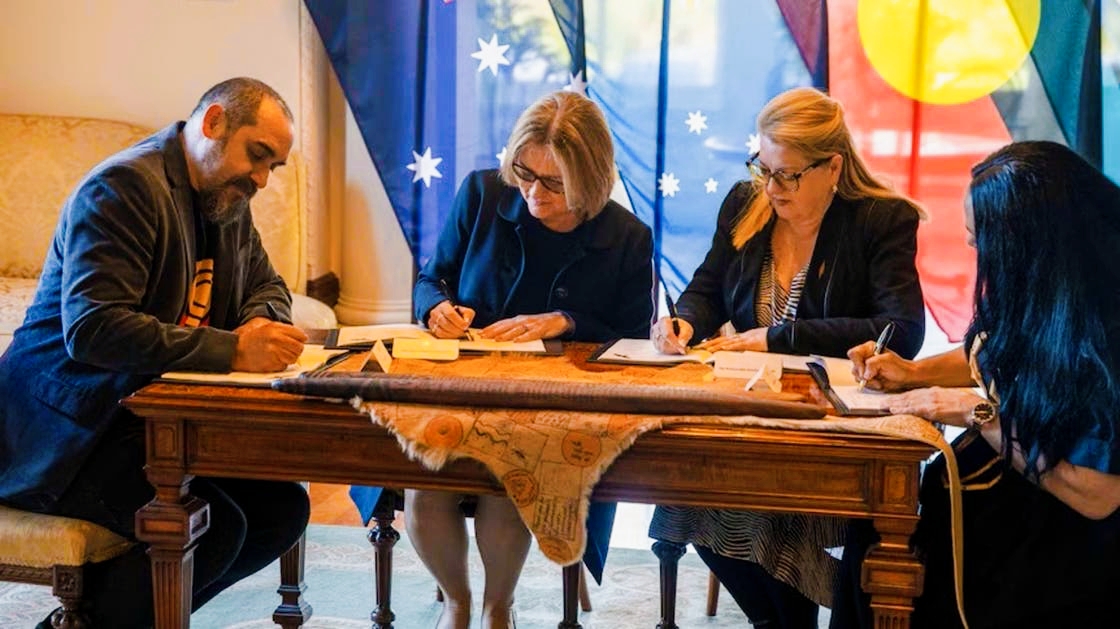Victoria, Australia Signs Landmark Treaty with Indigenous Communities

In a significant move towards reconciliation, the state of Victoria, Australia, signed its inaugural treaty with Indigenous communities on Thursday, November 13, 2025. This landmark agreement sets a national precedent following decades of discussions and demands for recognition and justice.
The treaty, effective December 12, 2025, includes a formal apology from the state government for historical injustices faced by Indigenous peoples. It also establishes a permanent representative body called the "First Peoples Assembly," which will provide advice to the state government on laws and policies impacting Indigenous communities, though it will not have veto power.
During the signing ceremony in Melbourne, Premier Jacinta Allan remarked:
"Today marks a new chapter in our state's history. This treaty is more than just a document; it represents a commitment to a more equitable and respectful future for all Victorians."
This agreement is viewed as a pivotal development for Australia, which has historically lagged behind other colonial nations such as the United States, Canada, and New Zealand, all of which have engaged in similar treaties with their Indigenous populations for many years.
Australia's Indigenous population, estimated at around one million, faces significant disparities in various social and economic indicators compared to the broader population, including education, health, income, and life expectancy.
The treaty follows a significant setback for national reconciliation efforts, as 60% of Australian voters and all six states rejected a proposal in the 2023 national referendum to include an advisory body for Indigenous peoples in the constitution.
Discussions regarding the treaty began in 2016, leading to extensive consultations between the state government and Indigenous representatives. The state parliament passed the relevant legislation last October, paving the way for this historic agreement.
With this treaty, Victoria becomes the first Australian state to officially recognize Indigenous peoples as partners in shaping the future, a move many hope will inspire similar agreements in other states in the years ahead.
"Today is not the end of the road, but the beginning";
Jacinta Allan concluded her address, emphasizing that genuine reconciliation requires ongoing commitment to justice and mutual respect.
